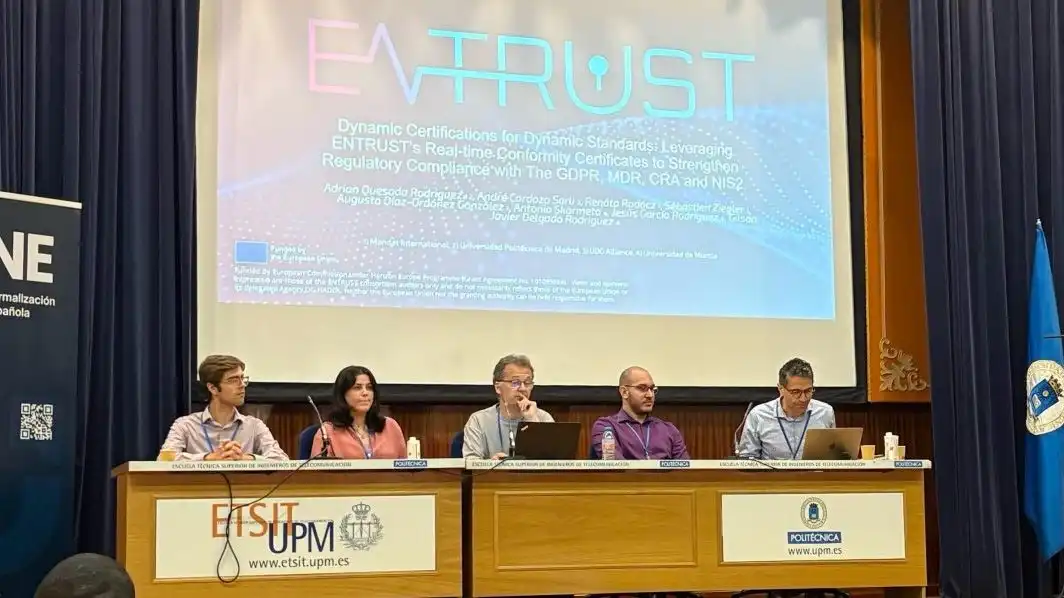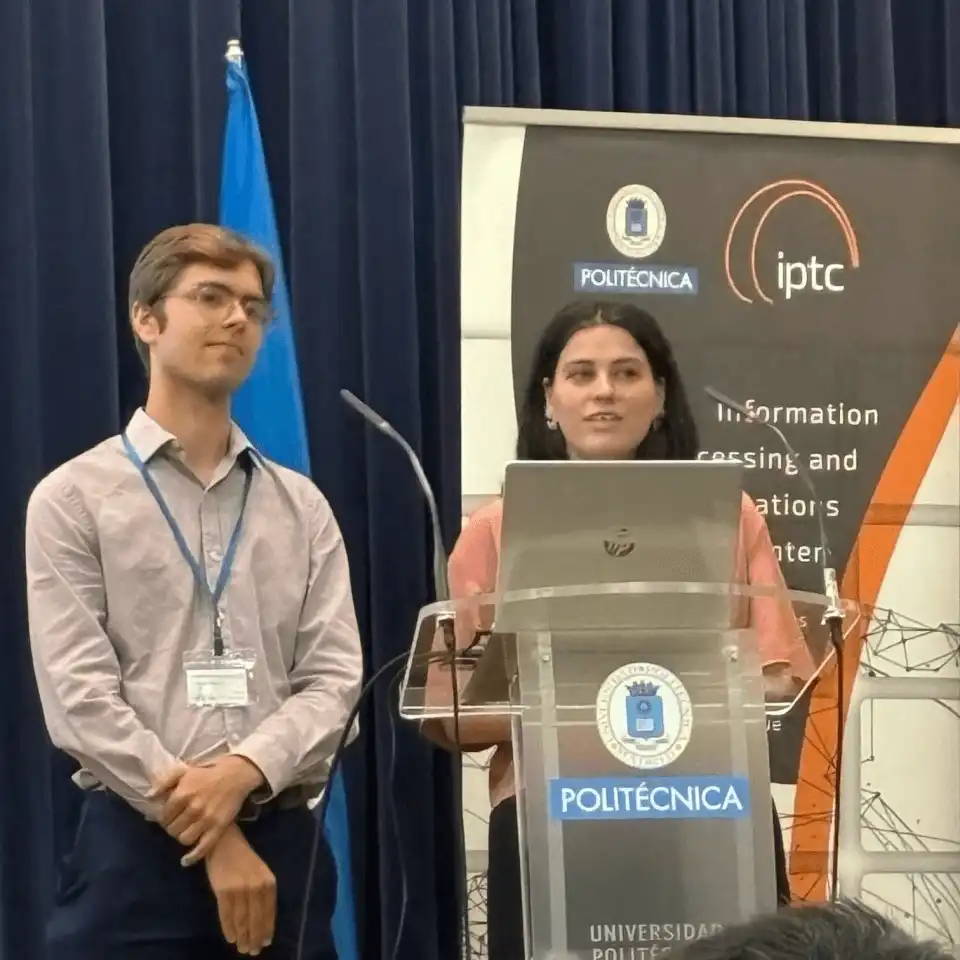Home>Standards for Whom? Advocating for EU Regulatory Transparency
26.11.2025
Standards for Whom? Advocating for EU Regulatory Transparency
DIGILAW Clinic students presented their research on transparency in EU harmonised standards at European Academy for Standardisation (EURAS) 2025 in Madrid. Their project highlights limited access to standards in France and gaps in public administration practices, sparking international discussion and paving the way for future academic publication.

Students working as part of the DIGILAW clinic programme and specifically on the clinic project “Access to Harmonised Public Safety Standards” with Public.Resource.Org, Inc. were chosen to present a paper entitled “Standards for Whom? Advocating for Transparency in EU Regulatory Documents” at the 2025 EURAS conference “Empowering Standardisation Through Education” which took place at the Universidad Politécnica de Madrid in June 2025.
Through the evidence collected by the clinic project team over the past academic year, the paper identifies two key findings. Firstly, EU harmonized standards remain largely inaccessible in France, despite a European Court of Justice ruling in March 2024 that determined there is an ‘overriding public interest’ in disclosing harmonized standards. Secondly, while not the original purpose of the clinic project, the team identified that French administrations fail to adhere to the “Code des relations entre le public et l'administration”.

PSIA students Logan Pecht, Erla Maranaku and Lenora Dsouza began preparing the paper at the beginning of the second semester, after a research exchange visit to the IViR clinic at the University of Amsterdam where students had the opportunity to share and elaborate their project methodology. In Amsterdam, students connected with academics in the field of privacy, transparency, and digital technology law along with scholars in the field of standardization, in particular with Dr. Olia Kanevskaia from Utrecht University and Dr. João Pedro Quintais from the University of Amsterdam. With their support, students were able to substantially strengthen their findings by linking them back to the broader literature on digital law and standardization.
Over the course of the conference in Madrid, the student clinic team had the opportunity to connect with academics and practitioners in the field of standardisation from a diverse background of fields including engineering, law, economics, and political science. Students became aware of the various ways in which standardisation shapes different regulations, product designs, and political decision making and are influenced by a confluence of stakeholders including academics, industry players, and international organizations. After presenting the findings from the DIGILAW clinic project, students were incredibly pleased with the level of feedback and interest from other participants in the conference, each of whom were able to share their own perspectives and suggest ways to move forward. The student team is now working to incorporate the feedback received during the conference for submission to an academic journal on standardization.
Logan Pecht and Erla Maranaku, who travelled to Madrid to present the paper, explain “this experience was an incredibly valuable opportunity to share our findings on the lack of transparency in France and the EU over access to harmonized standards and other regulatory documents.” They go on to say:
It was also a great opportunity for our team to interact with others in the field of standardization, to broaden the scope of our research and contextualize it within the rest of the literature. We look forward to pursuing our research project in the future!
FIND OUT MORE
Information Sessions: Masters

Find out more about the Masters programs and the wide choice of specialisations offered by the 8 Schools of Sciences Po during our webinars dedicated to applicants.